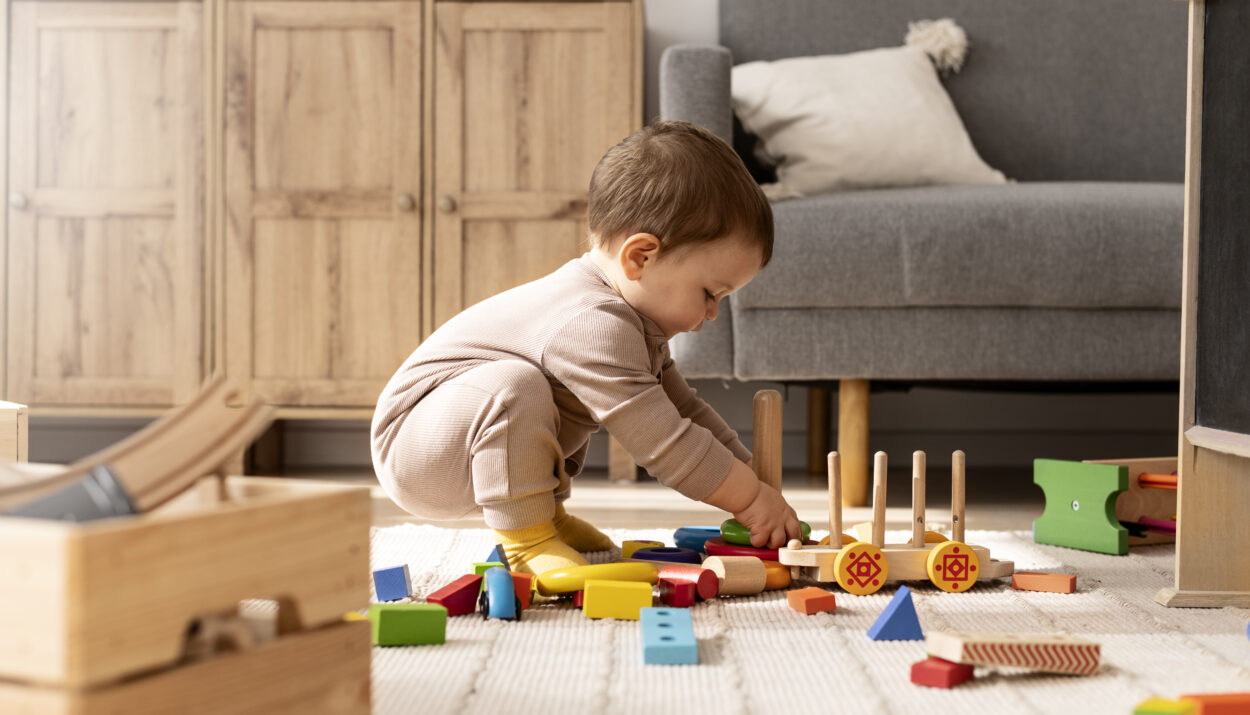We parents want our children to grow through play and learn in the best way possible! But with so many toys available in the market, it is difficult to pick the right ones. Montessori toys stand out because they are simple, purposeful, and designed to promote independent learning. Baby, toddler, or older child, there’s a Montessori-inspired toy that can support their development. Let’s explore the Montessori toys for different age groups and how they can benefit your child.
Montessori Toys: What and Why?
Montessori toys are designed in way so that they encourage hands-on learning, creativity, and independence. Unlike flashy, battery-operated toys, Montessori toys are usually made of natural materials, focus on a single skill, and allow children to explore at their own pace. Some benefits include:
- Enhancing fine and gross motor skills
- Promoting problem-solving and critical thinking
- Encouraging open-ended play
- Developing concentration and patience
Montessori Toys by Age Group
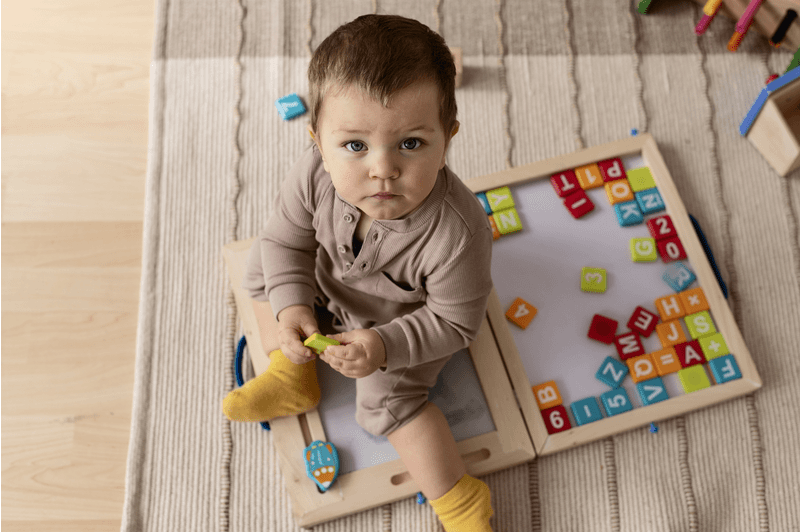
0-6 Months
At this stage, babies are on Sensory Exploration, discovering the world through their senses. Montessori toys for infants focus on touch, sight, and sound.
- High-contrast black-and-white cards – Stimulates visual development
- Wooden rattles and grasping toys – Encourages hand coordination
- Soft fabric balls – Helps babies explore texture and movement
- Hanging mobiles – Promotes focus and visual tracking
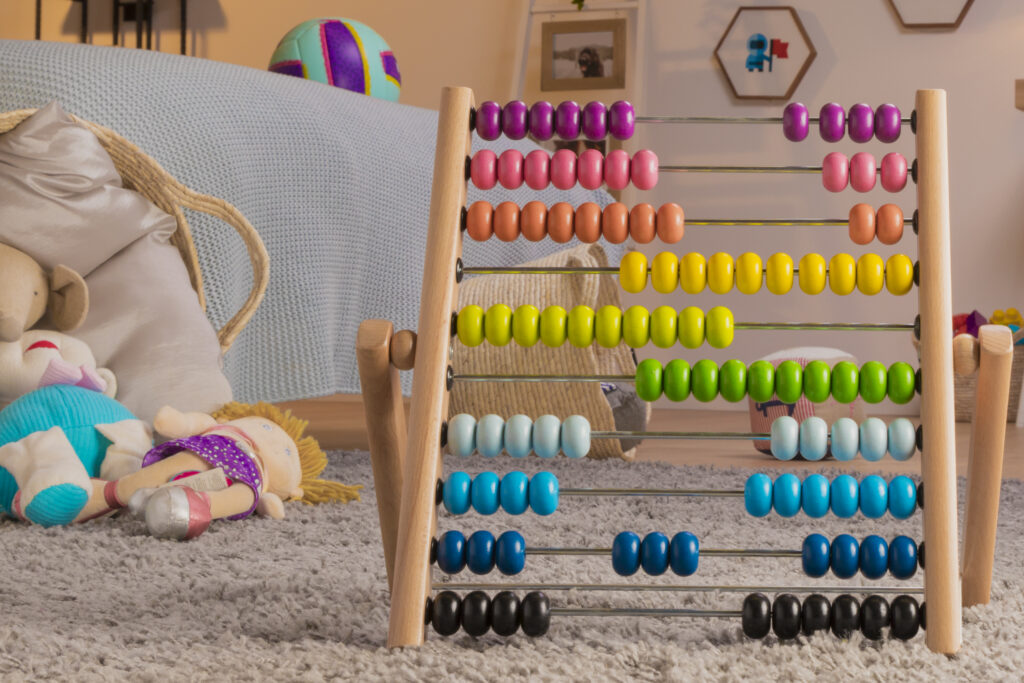
6-12 Months
Babies begin Developing Coordination through grasp, shake, and explore objects. Toys that encourage movement and coordination are perfect.
- Object permanence box – Teaches cause and effect
- Stacking cups – Improves hand-eye coordination
- Rolling drum or push toys – Encourages crawling and movement
- Teething rings – Provides sensory relief and strengthens grip
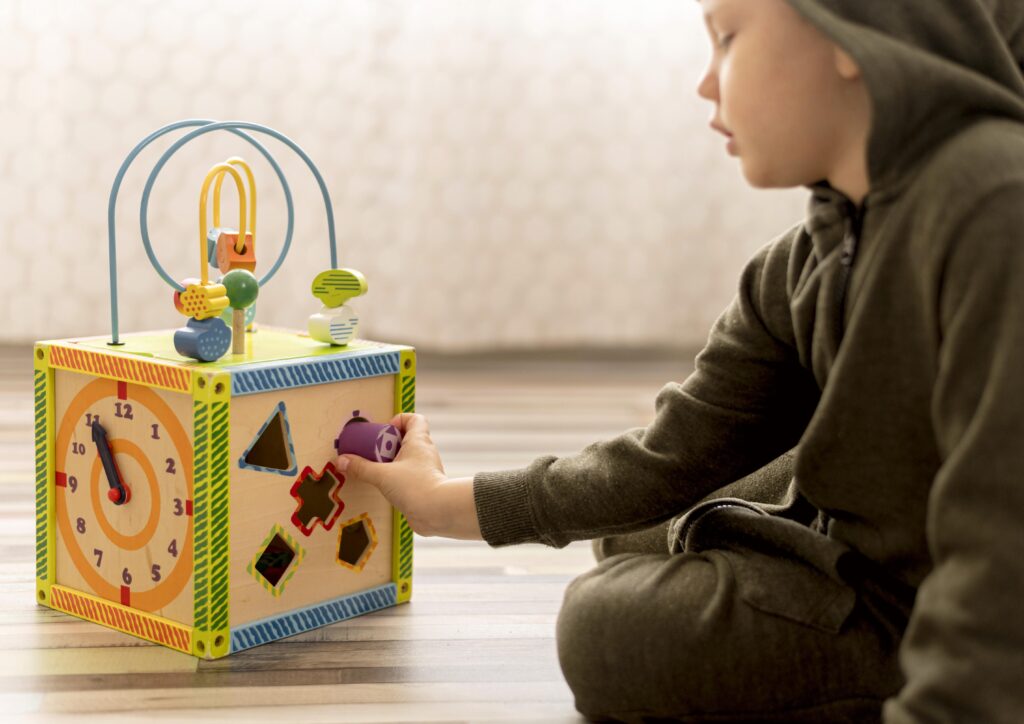
1-2 Years
Toddlers are in Early Problem Solving stage and love to explore and manipulate objects. Toddler Montessori toys support their curiosity and motor development.
- Shape sorters – Introduces spatial awareness
- Peg puzzles – Enhances fine motor skills
- Simple musical instruments – Encourages rhythm and auditory skills
- Nesting bowls and blocks – Supports early problem-solving
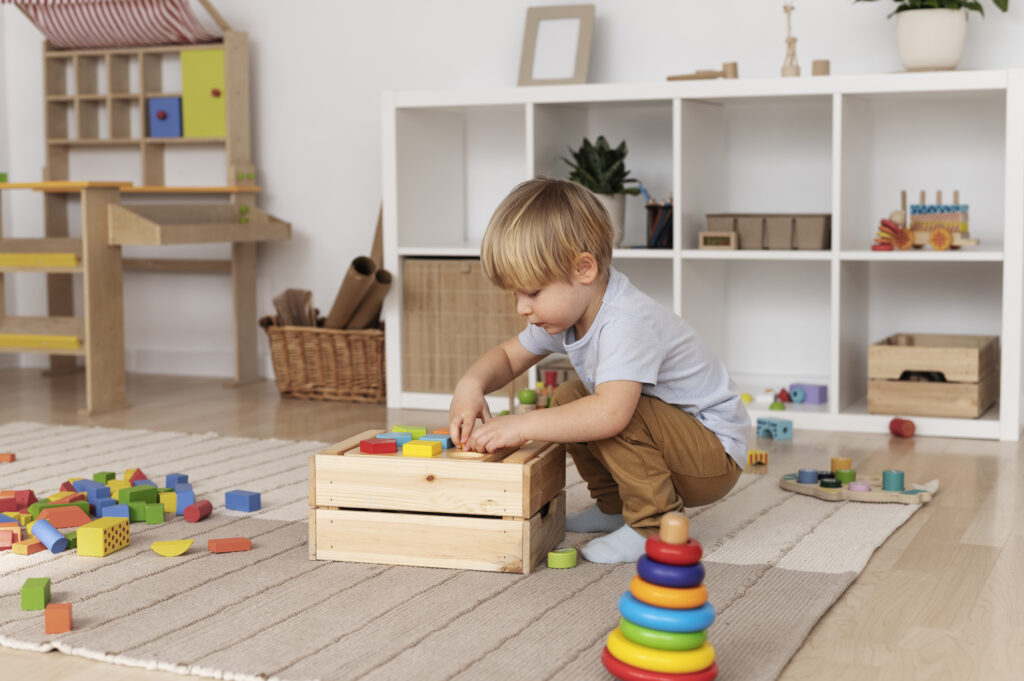
2-3 Years
At this age, Independence & Creativity kicks in. Children start engaging in pretend play and improving their problem-solving abilities.
- Wooden dollhouse or kitchen set – Encourages imaginative play
- Lacing beads – Builds fine motor skills and patience
- Balance board – Strengthens coordination and body control
- Simple real-life tools (child-sized brooms, kitchen sets) – Encourages independence
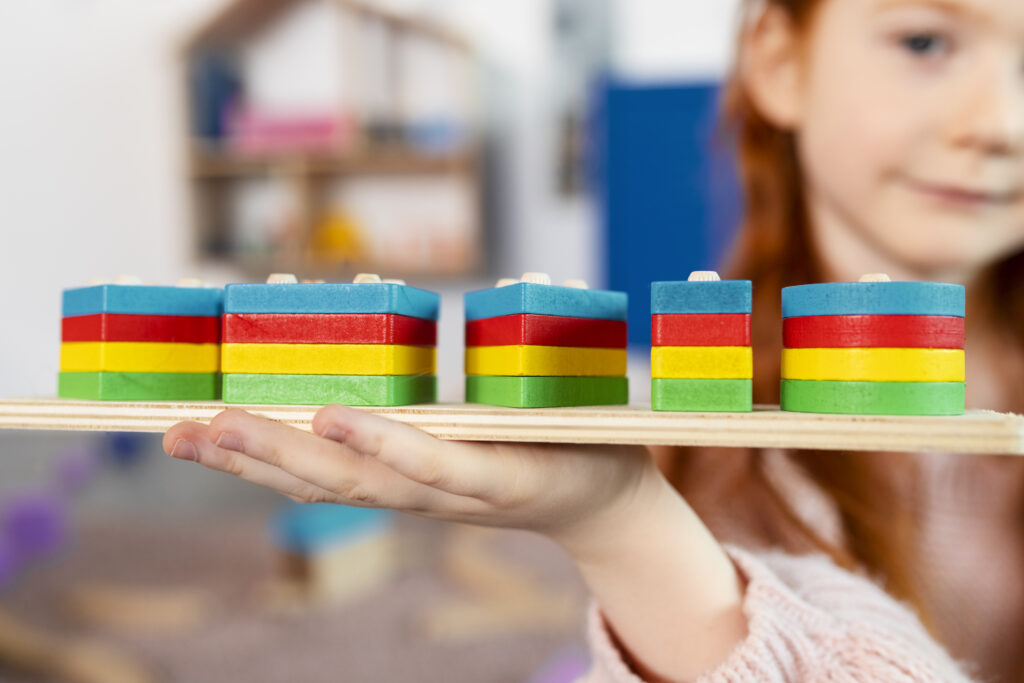
3-5 Years
Preschoolers begin Logical Thinking & Skill Development. Refining their fine motor skills and logical reasoning. Montessori toys for this age promote creativity and cognitive development.
- Wooden puzzles with knobs – Enhances problem-solving
- Counting beads and number rods – Introduces early math concepts
- Arts and craft supplies – Encourages creativity and self-expression
- Gardening tools – Teaches responsibility and connection with nature
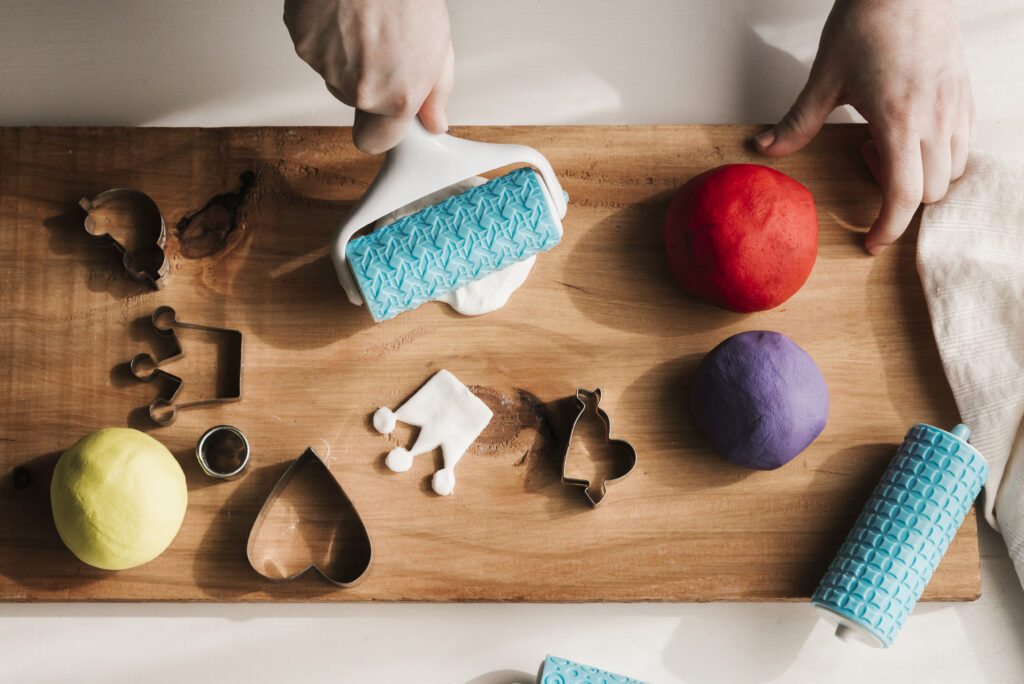
6+ Years
Older children thrive on Complex Problem Solving & Exploration, with hands-on projects and logical challenges. Montessori-inspired activities can help sharpen their skills.
- STEM building kits – Develops engineering and problem-solving skills
- Simple board games – Encourages critical thinking and social interaction
- Science experiment kits – Fosters curiosity and independent learning
- Woodworking or sewing kits – Promotes focus and hands-on creativity
Choose the Right Montessori Toys
Montessori toys aren’t about having the fanciest or most expensive items. They are tools to explore, learn, and develop real-life skills in a fun and engaging way. When choosing a Montessori toy, ask yourself: Does it encourage independent exploration?… Is it made from natural, safe materials?… Does it focus on a single skill or concept?
By choosing the right Montessori toys for your child’s age and stage, you can create an environment that nurtures their natural curiosity and love for learning.
Do you use Montessori toys at home? Share your favorites in the comments below!
Learn more about parenting here.
Related post:





